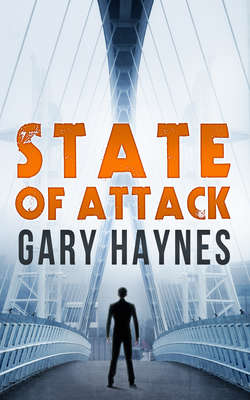Читать книгу State Of Attack - Gary Haynes - Страница 32
ОглавлениеChapter 23
Inside the military hospital’s lobby, Tom saw two doctors with stethoscopes draped around their shoulders standing before him like sombre sentinels. One was a clean-shaven man wearing thick eyeglasses, the other an elegant-looking woman, with her blue-black hair in a neat bun. She was holding a black clipboard and as Tom got closer he could see that her lips were full, almost lascivious, her eyes dark and humane.
She smiled without revealing her teeth, holding out her hand to greet him. “Mr Dupree?”
“Yes,” he replied.
“I am Doctor Asani. Your father’s doctor. I hope you had a comfortable journey.”
“Just fine, thank you, ma’am.”
The male doctor said nothing, neither did his resigned expression change, which Tom felt wasn’t a good sign.
“This way, please,” she said, leading him out of the well-lit corridor, the walls of which were dotted with oil paintings showing various scenes from Turkey’s military history.
Tom stopped in his tracks. He said, “My father first. Then we can talk. If that’s okay with you, ma’am.”
She looked a little taken aback, but the closed-mouthed smile soon returned. Tom reckoned she wasn’t used to being contradicted.
She nodded. “But I must warn you that your father cannot speak,” she said. “He is in a coma.”
Tom clenched his jaw, nodded back. Dear God, he thought, a coma.
“Don’t touch anything,” she said, as if he was a school kid.
About ten yards down a blue cinderblock corridor, Tom entered the windowless private room, which was about fifteen foot square and painted a milky white. It had a low ceiling, decent enough AC, an empty nightstand and a closed closet. The general lay on his back in a metal-framed bed, hooked up to a ventilator and three monitors.
There was a saline drip and another two tubes leading from his hands. He looked wraith-like, his body appearing bony and frail beneath the flimsy disposable paper gown. His head was bandaged; his freshly scarred face gaunt and grey around the breathing apparatus. His visible forearms and calves were lacerated.
Tom took out his small Buddha that he always carried with him and rubbed its mahogany surface with his thumb. But when he knelt and prayed that his father would live, it was to the Christian God, not the man, Siddhārtha Gautama.
He moved forwards now, stretched out his hand but retracted it. It wasn’t because of what the doctor had said, but rather the fact that he felt his father’s bones would somehow crumble under his touch, his skin turn to powder like a butterfly’s wings.
So he began to talk, just that, just words. He couldn’t recount the great times they’d had together when Tom was a kid, because there weren’t any. He just talked about the journey here, a mundane and detached summary.
A few minutes later the door opened and Gabriel came in, holding a secure satphone. He looked awkward. “Sorry to intrude. But it’s urgent.” He gestured with the phone.
“Who is it?”
“The boss.”
“Yours or mine?”
He thrust the phone out, but then placed it on the nightstand. “I’ve posted two paramilitaries outside. Good men.”
“Thanks.”
He left. Tom walked over and picked up the phone.
“How is he?”
It was Crane’s voice.
“‘Bout the same as you were told before I set out, I guess.”
“I thought he might recover given the time it took you to get there,” Crane said.
“No you didn’t. So what’s the deal?”
